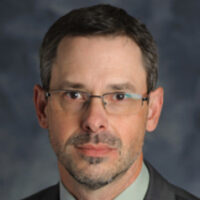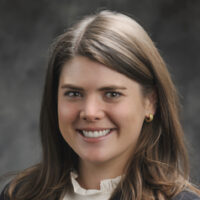On Oct. 12, National Farmers’ Day, Americans honor the hardworking people who keep the world fed and clothed.
But the farming labor force has a problem: It’s aging rapidly.

The average American farmer is 57 and a half years old, according to the most recent data from the U.S. Department of Agriculture. That’s up sharply from 1978, when the figure was just a smidge over 50.
As researchers who study well-being in rural areas, we wanted to understand this trend and its implications. So we dug into the data.
Amber waves of graying
We found that the average age of farmers was fairly consistent across the country, even though the general population’s age varies quite a bit from place to place.
For example, the average Maine farmer is just a few months older than the average farmer in Utah, even though the average Maine resident is more than a decade older than the average Utahn.
To be fair, we did find some local differences. For example, in New York County – better known as Manhattan – the average farmer is just north of 31. Next door in Hudson County, New Jersey, the average farmer is more than 72.
On the whole, though, America’s farming workforce is getting older. If the country doesn’t recruit new farmers or adapt to having fewer, older ones, it could put the nation’s food supply at risk. Before panicking, though, it’s worth asking: Why is this happening?
A tough field to break into
To start, there are real barriers to entry for young people – at least those who weren’t born into multigenerational farming families. It takes money to buy the land, equipment and other stuff you need to run a farm, and younger people have less wealth than older ones.
Young people born into family farms may have fewer opportunities to take them over due to consolidation in agriculture. And those who do have the chance may not seize it, since they often report that rural life is more challenging than living in a city or suburb.
The overall stress of the agriculture industry is also a concern: Farmers are often at the mercy of weather, supply shortages, volatile markets and other factors entirely out of their control.
In addition to understanding why fewer younger people want to go into agriculture, it’s important to consider aging farmers’ needs. Without younger people to leave the work to, farmers are left with intense labor — physically and mentally – to accomplish, on top of the ordinary challenges of aging.
In other words, the U.S. needs to increase opportunities for younger farmers while also supporting farmers as they age.
Opportunities to help
The USDA already has programs to aid new farmers, as well as farmers of color and female farmers, and those who operate small farms. Expanding these programs’ reach and impact could help bring new talent into the field.
Congress could do just that when it reauthorizes the farm bill – a package of laws covering a wide range of food – and agriculture-related programs that get passed roughly every five years.
The farm bill also includes nutrition aid and funds telehealth and training and educational outreach for farmers, all of which could help meet the needs of young and aging farmers alike. Notably, the Cooperative Extension Service offers programs that range from 4-H and youth development, including introduction to agriculture, to providing on-site technical help.
Congress was supposed to reauthorize the farm bill by Sept. 30, 2023, but it missed that deadline. It now faces a new deadline of Dec. 31, but due to dysfunction in the House of Representatives, many expect the process to drag on into 2024.
Also in 2024, the USDA will release its next Census of Agriculture, giving researchers new insight into America’s farming workforce. We expect it will show that the average age of U.S. farmers has reached a new all-time high.
If you believe otherwise – well, we wouldn’t bet the farm.
This article is republished from The Conversation under a Creative Commons license. Read the original article.
David R. Buys, PhD, MSPH, CPH, FGSA is the State Health Specialist for the Mississippi State University (MSU) Extension Service and Associate Professor in the Department of Food Science, Nutrition, and Health Promotion at MSU. As a researcher, he examines how food security and nutritional status affects older adults’ health-related outcomes; he has a substantial interest in the role of home and community-based services, including meals on wheels on older adults well-being. He has published nearly 40 peer-reviewed articles, including in such journals as Public Health Nutrition; the American Journal of Public Health; Journals of Gerontology: Medical Sciences; the Journal of the Academy of Nutrition and Dietetics; and the Journal of Nutrition in Gerontology and Geriatrics. In his role as State Health Specialist for the Extension Service, Dr. Buys provides research-based health-related resources to Extension Agents in each of Mississippi’s 82 Counties with a particular focus on the creating healthy home environments, prevention and management of chronic diseases, and substance use prevention and farm stress management among rural populations. Dr. Buys maintains an adjunct appointment in the University of Alabama at Birmingham School of Medicine’s Division of Gerontology, Geriatrics, and Palliative Medicine where he previously served on faculty. He has formal training in medical sociology, health services research, and epidemiology from Mississippi College, Auburn University, and the University of Alabama at Birmingham; he is Certified in Public Health by the National Board of Public Health Examiners and is a Fellow of the Gerontological Society of America.
John J. Green serves as Director of the Southern Rural Development Center (SRDC), an organization focused on building capacity among the 30 Land-Grant institutions located in the region. The SRDC is one of four Regional Rural Development Centers in the country arising from the 1972 Rural Development Act and operating with base support from the US Department of Agriculture’s National Institute of Food and Agriculture. Additionally, he serves as Professor in the Mississippi State University (MSU) Department of Agricultural Economics, Affiliated Faculty in the Department of Sociology, and Research Fellow with the Social Science Research Center. Green is an active participant in the multi-state Rural Population Research Network (W5001).
Before joining MSU, Green was Director of the Center for Population Studies, founding Co-Director of the Society and Health Academic Minor, and faculty in the Department of Sociology and Anthropology at the University of Mississippi. Prior to UM, he worked in several capacities at Delta State University through the Center for Community and Economic Development and the Division of Social Sciences and History. Green earned a BA in Political Science and MS in Sociology from MSU, followed by a PhD in Rural Sociology from the University of Missouri-Columbia. His professional service has included terms as President of the Rural Sociological Society and Southern Rural Sociological Association, as well as terms as editor with the journal Community Development (Community Development Society) and the Journal of Rural Social Sciences (Southern Rural Sociological Association).
Mary Nelson Robertson, PhD, CHES, is an Assistant Professor of Human Development and Family Science at Mississippi State University. Dr. Robertson has a passion for improving the health and well-being of rural populations. Her research interests include farm stress prevention, farm family well-being, food insecurity, mental health, and opioid misuse prevention. Dr. Robertson earned a PhD in Human Development and Family Science at Mississippi State University. She also earned a bachelor’s and master’s degree in health promotion and health education at the University of Alabama. She is a Certified Health Education Specialist by the National Commission for Health Education Credentialing.





